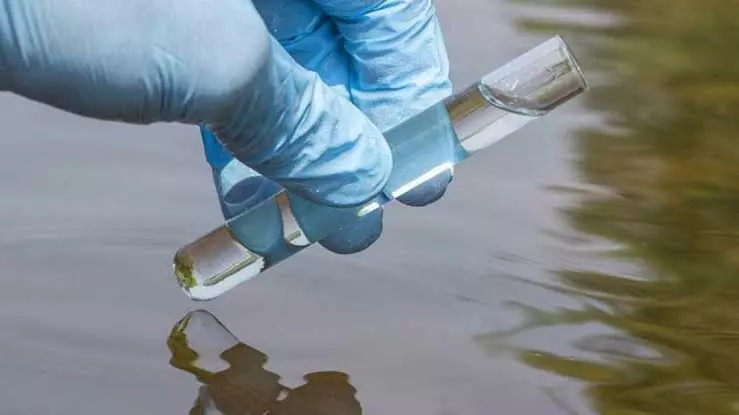Hyderabad GITAM prof gets Rs. 48 lakh grant for brackish water desalination project
Department of Science and Technology (DST), Ministry of Science and Technology, Government of India sanctioned a research project on the desalination of brackish water
By Newsmeter Network
Hyderabad: Dr. Subhash Chandra of GITAM (Deemed to be University) has been sanctioned a research project on the desalination of brackish water for industrial usage by the Department of Science and Technology (DST), Ministry of Science and Technology, Government of India. Dr. Chandra received a grant of Rs. 48.61 lakh as part of the Water Technology Initiative plan in March 2023.
A quarter of the world’s population lacks access to safe drinking water and almost half lacks sanitary facilities. According to a Morgan Stanley analysis, the gap in water access is predicted to widen by 40% over the next seven years, creating a new urgency to address water shortages and sustainable water management.
Water shortage is a humanitarian concern but it also has significant economic consequences. According to the World Bank, water shortages in some countries might reduce GDP growth by up to 11.5% by 2050.
In our current bleak circumstance, brackish water regeneration provides tremendous promise. Brackish water, which is saltier than freshwater but less salty than saltwater, is widespread in coastal areas, estuaries, and aquifers, and its desalination is critical in alleviating water scarcity in many desert places. The desalination systems market in India is expected to increase at a rate of more than 3% per year over the next several years.
About the project
The project’s goal is to create sustainable carbon electrodes from biomass waste for use in membrane capacitive deionization (MCDI) technology, which has emerged as a promising water treatment technology for seawater desalination because it is a greener alternative with low energy consumption, high efficiency, easy electrode regeneration, and no secondary pollution. MCDI technology is projected to offer high desalination efficiency and salt rejection rates, making it a feasible and low-cost method of desalinating brackish water.
Dr. Subhash Chandra, assistant professor, department of civil engineering at GITAM, and Prof. Jayanta Bhattacharya of IIT Kharagpur will collaborate on the project to apply an electrical potential across a pair of porous carbon electrodes separated by a permeable membrane.
When an electrical potential is given to the electrodes, the salt ions in brackish water are adsorbed, leaving fresh water behind. The electrodes are subsequently discharged, causing salt ions to be washed away.
The project will culminate in a pilot-scale desalination plant, which will be tested for desalination in collaboration with Zelence Industries Private Limited. Industries with high water consumption, such as textile, pulp, paper, and thermal power plants, stand to benefit from this project. The expected launch of the desalination unit is planned for late 2025 to early 2026.
Dr. Subhash Chandra of GITAM said, “This project will help us develop a sustainable and cost-effective solution to the water scarcity problem in India’s arid regions. We will grow carbon electrodes using functionalised biochar and design and develop the MCDI cell for desalination. This initiative also emphasises the significance of sustainable practices and innovation in addressing pressing concerns like water shortage and climate change. Developing sustainable carbon electrodes from biomass waste for brackish water desalination is an important step towards a carbon-neutral future.”